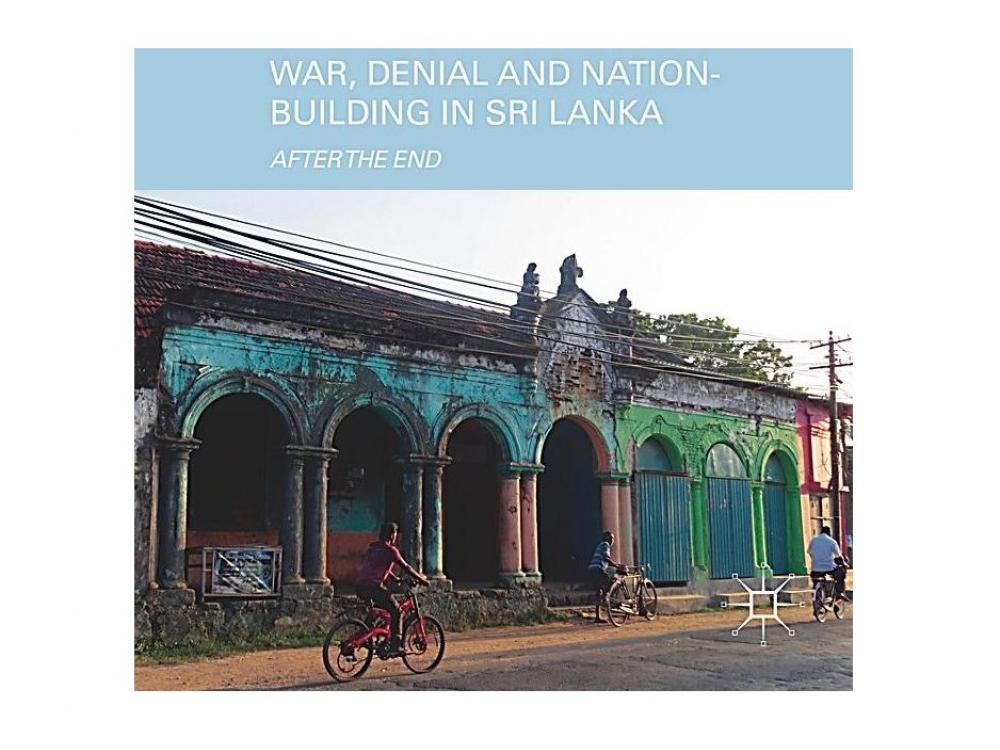by ‘Tamil Guardian,’ London, April 30, 2018
Rachel Seoighe launched her book ‘War, Denial and Nation-Building in Sri Lanka’, which explores how political discourse has been utilised to deny and re-engineer state violence in Sri Lanka, at an event in London last week.
“People were dying in their hundreds, we still don’t know how many people died,” said Dr Seoighe speaking on the final phase of the armed conflict on the island. “The UN says at least 40,000.”
“It’s not easy in the wake of a mass atrocity to maintain resilience,” she added, stating that “this is the environment in which the Tamil people pursue accountability.”
In her book, which is drawn on a range of interviews in the diaspora and on the island, Dr Seoighe analyses how the Sri Lankan state constructed its narrative of the conflict to build its denial of mass atrocities.
Speaking to the Tamil Guardian, Dr Seoighe said,
“The book is an effort to make sense of a time of immense violence by examining how it is spoken about and remembered. The Sri Lankan government frames the end of the war as a time of heroism and victory. The Tamils associate it with grief, mass atrocity and devastation. This complete opposition reveals the relationship between the state and the Tamil population.”
“The Tamils face political, cultural and social suppression in the post-war environment, and it centres around memorialisation. It is precisely because community mobilisation and collectivity arises from memory practices that the state represses them so brutally. The book explores how politics and identity are recreated after atrocity and in a much altered political space.”
 “Entangled representations of Sinhala Buddhist nationalism, the demonization of the Tamil ‘other’, and the domestication of ‘war on terror’ and humanitarian discourses are all discernible,” she writes. “These discourses have operated to subjugate Tamil political agency alongside coercive mechanics of social control such as militarisation, surveillance and intimidation”.
“Entangled representations of Sinhala Buddhist nationalism, the demonization of the Tamil ‘other’, and the domestication of ‘war on terror’ and humanitarian discourses are all discernible,” she writes. “These discourses have operated to subjugate Tamil political agency alongside coercive mechanics of social control such as militarisation, surveillance and intimidation”.
“The book is written from a place of solidarity and work with the Tamil community over nearly a decade,” Dr Seoighe told the Tamil Guardian. “It’s written in opposition to the Sri Lankan state’s narrative of the conflict, which aims to erase Tamil suffering, deny atrocity, and undermine the community’s right to agitate for justice.”
Speaking alongside Dr Seoighe was Sinthujan Varatharajah, who recited an essay examining tourism in the North-East.
See more on the book from Palgrave Macmillan here.
